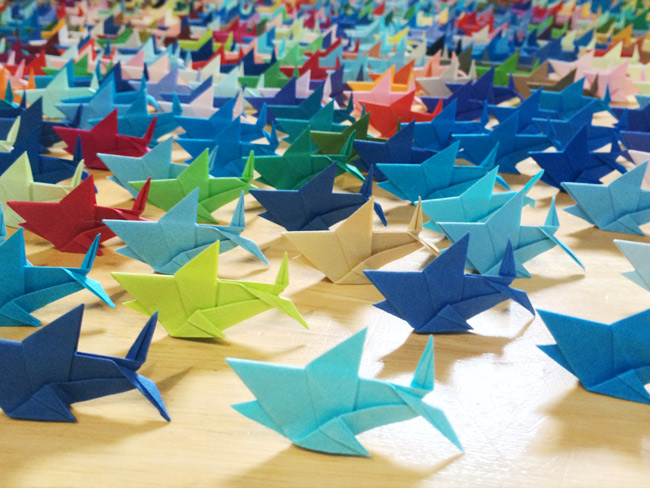about
Inspired by the traditional Japanese story that folding 1,000 origami cranes (千羽鶴) will make one’s wish come true, Paper Sharks is a project that aims to raise support and awareness for shark conservation.

collection
the paper shark galleries

personal project
Join me in taking on the 1,000 paper sharks challenge!

add your shark to the collection
Send in a photo of your paper shark to have it added to our gallery of sharks from around the world!

paper sharks in action
Share your event & activity photos to show your support and help inspire others!
folding instructions
origami shark pattern download
Here you will find free PDF instructions of the paper shark origami pattern created by yours truly! Choose from two versions of the pattern – one for double sided paper and another for single sided paper.
paper patterns
origami shark pattern download with paper designs
In case you don’t have origami paper on hand, you will also find PDFs of the origami shark pattern that include paper pattern squares at the bottom that can be printed, cut out and folded into your very own paper shark!
fin free wedding stationery
free downloads for invitations, RSVP cards, thank you cards, lai see envelopes and much more
In cooperation with Hong Kong Shark Foundation, I am happy to offer two open-source downloadable stationery suites for couples wishing to celebrate their fin-free wedding in style!
Contact
Please show your support for shark conservation by sending photos of your folded paper shark or photos of your special events. General inquiries, requests, and ideas for collaboration are also welcome!
